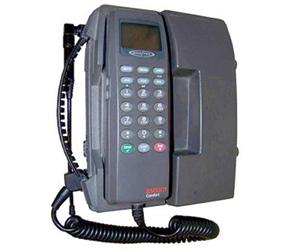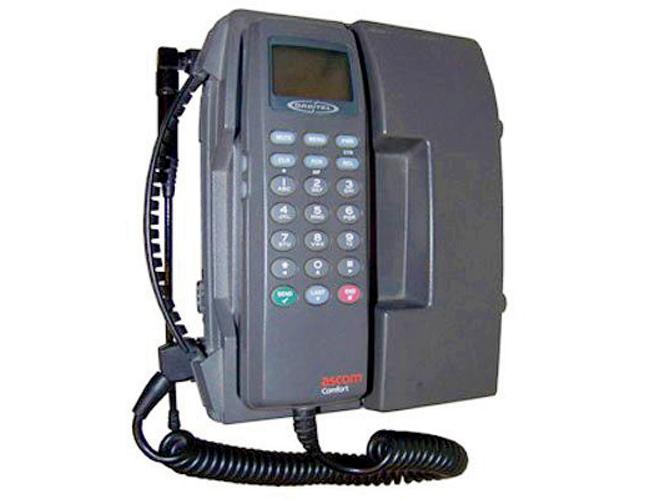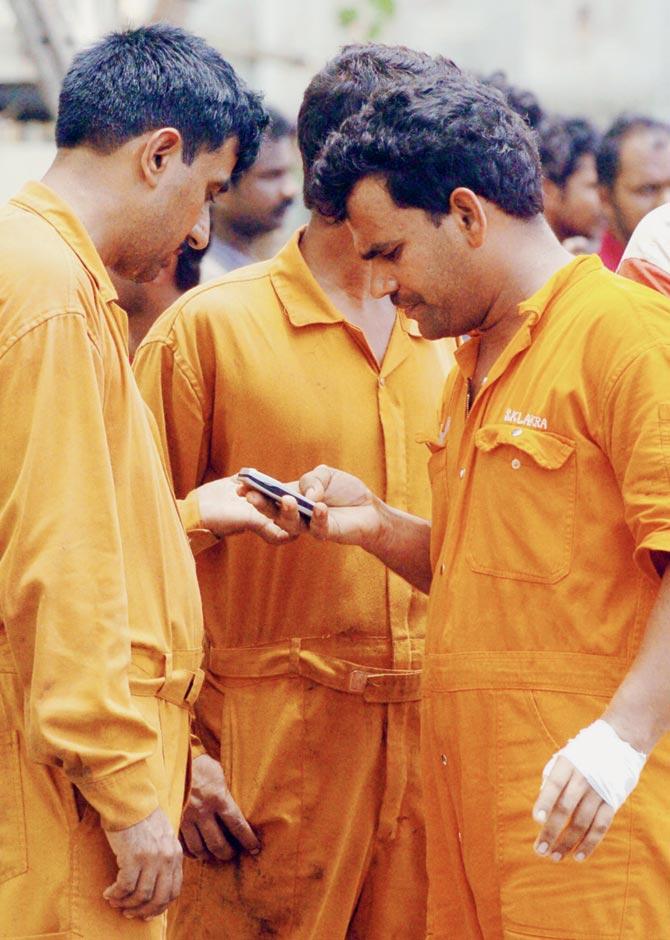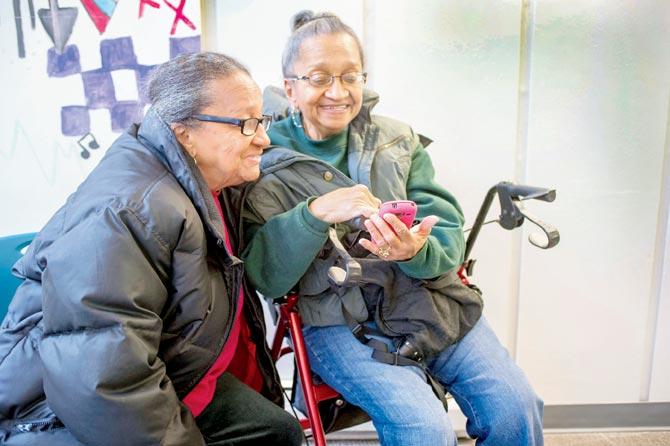It has been 25 years since a seemingly routine moment in Neil Papworth's day ended up changing the way we communicate for good

When Neil Papworth reported to work on the morning of December 3, 1992, he didn't know he was hours away from making telecom history. That was the day he successfully sent the world's first mobile text message, which, prematurely enough was 'Merry Christmas'. No emojis, smileys, pictures or sounds - just those two words. Papworth, then a 22-year-old software engineer, was working for Sema Group, a company contracted by Vodafone to write the SMS system for them. He, however, had been working in the department that tackled encryption and blocking stolen handsets. "I joined the SMS team, and designed one of the components of the system. Then, I volunteered to install the SMS system and help them test it in their [Vodafone] network," Papworth tells us in an email interview from Quebec, Canada.
ADVERTISEMENT

The Orbitel 901 phone to which Papworth sent the first SMS from a computer
That test proved successful, earning him the title of being the man to send the first SMS. He was among a group of 26 people who were developing the system at the peak of the project, back then. Eight years prior, Finnish creator, Matti Makkonen, widely considered the Father of the SMS, had set the ball rolling. Even when Papworth was well into his trials, the SMS was nothing like how we recognise it today. He had sent it from a computer to a phone. "Back then, phones could not send messages, they could only receive them. So, that was the only option we had. While the SMS system was new, the existing mobile network technology associated with it, was also new. So, there was a lot of equipment that needed testing, and that took us a few months. The first message was sent to an Orbitel 901 phone," Papworth says. We are curious to know why such a premature Christmas message. "Because the recipient, my colleague, Richard Jarvis, was at a company Christmas Party. It was actually the official demonstrator that the SMS was working - a soft launch of the service, for employees and customers to start testing it."

The first signs of notifications would be in the form of voice mails, such as "You have three unread messages". "After a year of our launch, handsets that could also send messages, enabling real person to person communication, came in. Once the phone networks opened up text messaging between people on different networks, and offered pricing that was cheaper than a phone call, public adoption was swift. Text messaging grew even further when applications were introduced, such as voting on TV shows," Papworth says. While the SMS ushered in a new kind of communication, it also created its own vocabulary, some of the words now legitimate and recognised by the English dictionary. That was not something Papworth or anyone on his team foresaw. "You had only 160 characters, so abbreviations like 'LOL' were a smart way to save space." he says. Ask him how much SMS lingo does he use, and he quips, "I prefer full sentences.

I almost never abbreviate!" He, however, cannot resist adding a 'LOL' with a wink, to that response. He's not big on emojis either, even though they have been around since 1998. "My kids use a lot of emojis. But, I've always used text smileys, such as :), which nowadays, the phone displays as an emoticon." Papworth is also no serial texter. "I'm not a big texter anymore. Just a few each day to work out meetings, and what to buy when I am shopping. I prefer using Facebook Messenger and Skype, if I see the other person online. I like to be confident that a message gets through and is read quickly," says the 47-year-old, who got his first smartphone in 2011. Unlike most tech geeks, he doesn't seem to be an Apple patron. "I use Google phones to keep up with Android updates, but I'm usually a couple of years behind the curve. I recently got a Google Nexus 5X," he adds.

Even as the SMS facilitated swift and cheap communication, it has also, over the years, made talking fade away. "Well, to some extent, that's a bad thing of course; people should talk. But, these days, we have less and less time to meet, talk, or call each other. Sometimes, we use text to communicate things we might be shy or hesitant to say in person. There are many downsides to this such as cyber bullying. I have been involved in projects and innovative applications that used SMS as the underlying service. I think the sea change has been more in the way people use text communication, than in the technology itself."

While the messaging technology seems to have reached its peak, with WhatsApp now making it possible to even recall a sent text, Papworth doesn't feel this is the end. "Communication visionaries will always be able to invent new twists. I think in the coming days we'll see messaging become more built into the apps and services we use. I'd like to see more done to prevent people from texting while driving or crossing roads. This is clearly an individual's responsibility, but anything we can do to help people make the right choices would be a good thing," he says. And, where does he see himself in telecom history? "Well, I will always be the man who sent 'that' message! Although I didn't invent anything, I think that's pretty cool really, and I feel privileged to be that person."
Catch up on all the latest Mumbai news, current affairs from Mumbai, local news, crime news and breaking headlines here
Download the new mid-day Android and iOS apps to get updates on all the latest and trending stories on the go
 Subscribe today by clicking the link and stay updated with the latest news!" Click here!
Subscribe today by clicking the link and stay updated with the latest news!" Click here!






